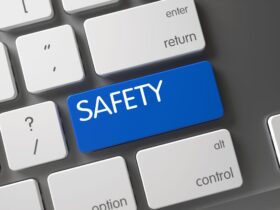In today’s fast-paced and highly interconnected digital landscape, the importance of public relations (PR) in managing reputation crises cannot be overstated. PR professionals play a crucial role in navigating organizations through challenging times, ensuring the effective control of communication channels and the preservation of brand reputation. By aligning your PR efforts with legal guidelines and regulatory requirements, you can maintain transparency, rebuild trust, and demonstrate your commitment to resolving the crisis.
PR strategies are instrumental in shaping public perception during a reputation crisis. According to a study, organizations that effectively manage public during a crisis experience a 30% higher rate of reputation recovery compared to those that struggle with PR efforts. This highlights the pivotal role of PR in mitigating the impact of a crisis and guiding your business towards recovery.
Key Takeaways
- PR plays a crucial role in controlling communication channels and maintaining transparency during a reputation crisis.
- Aligning PR efforts with legal guidelines and regulatory requirements is essential for preserving credibility.
- Effective PR strategies can lead to a 30% higher rate of reputation recovery during a crisis.
- PR professionals focus on crisis communication, media relations, stakeholder engagement, and reputation monitoring.
- Transparent communication, accountability, and rebuilding relationships are key PR strategies for reputation crisis management.
The Importance of PR in Managing Reputation Crises
When a reputation crisis strikes, public perception can quickly become volatile. Effective PR plays a crucial role in managing and shaping this perception. By providing accurate information, addressing concerns, and maintaining transparency, PR professionals control the narrative surrounding the crisis and ensure that key factual messages are communicated.
Managing Public Perception
PR professionals are skilled in crisis communication, utilizing their expertise to navigate the complex landscape of public opinion. They deploy strategic messaging and media relations tactics to frame the crisis in a way that aligns with the organization’s goals and prevents miscommunication. This proactive approach helps mitigate the risk of reputational damage and safeguards the brand’s integrity.
Maintaining Trust and Credibility
Rebuilding and maintaining trust is a critical aspect of reputation crisis management. PR professionals are adept at crafting well-prepared statements and key messages that demonstrate accountability and a commitment to resolving the issue. This transparency and responsiveness are essential for regaining the confidence of stakeholders, including customers, employees, and the broader public.
| Statistic | Percentage |
|---|---|
| Consumers who believe a strong company reputation is essential when choosing products or services | 95% |
| Consumers who trust a company with a strong reputation over a brand with a negative reputation | 87% |
| Consumers who say they would boycott a brand if it behaved unethically | 76% |
In the face of a reputation crisis, PR professionals play a vital role in managing public perception, maintaining trust and credibility, and guiding the organization through the turbulent waters of a crisis. By leveraging their expertise in crisis communication, media relations, and stakeholder engagement, they can help protect and restore the brand’s reputation, ultimately preserving its long-term success.
Reputation Crisis: Communication Control and Legal Compliance
During a reputation crisis, the swift spread of misinformation and rumors can exacerbate the situation, further damaging an organization’s credibility. Public relations (PR) professionals play a crucial role in controlling the communication channels, ensuring that accurate and timely information is disseminated to the public, employees, and other stakeholders. This proactive approach helps prevent the spread of false narratives that could escalate the crisis and undermine the organization’s reputation.
Alongside effective communication management, PR teams work closely with legal counsel to ensure that all crisis-related statements and actions align with legal guidelines and regulatory requirements. This strategic collaboration is essential for managing potential legal ramifications and maintaining the organization’s credibility, especially in industries with stringent compliance standards.
Compliance audits, for instance, help identify and address potential regulatory issues, including industry-specific regulations, environmental laws, labor standards, and data privacy laws. Failure to report incidents to the relevant authorities can lead to severe legal consequences, emphasizing the importance of understanding and adhering to reporting obligations.
By integrating crisis communication and legal compliance, organizations can navigate reputation crises more effectively, mitigating the spread of misinformation, avoiding legal pitfalls, and preserving public trust. This holistic approach, guided by PR expertise and legal expertise, is crucial for organizations to emerge from a crisis with their reputation and credibility intact.
Online reputation scoreandreputation management companyare important considerations for organizations during a crisis.
Crisis Management Tools for Communication and Compliance
Navigating a reputation crisis requires the strategic deployment of various crisis management tools, each serving a specific purpose in the response and recovery efforts. These tools span multiple domains, including communication, legal compliance, and stakeholder engagement, ensuring a comprehensive approach to crisis management.
| Tool Category | Examples | Purpose |
|---|---|---|
| Monitoring and Listening | Hootsuite, Meltwater | Track public sentiment, media coverage, and emerging issues during a crisis. |
| Communication and Collaboration | Slack, Everbridge | Facilitate accurate and timely information dissemination, as well as team coordination. |
| Planning and Preparedness | Resolver, Noggin | Identify and mitigate potential risks, and enhance crisis response readiness. |
| Legal and Compliance | Industry-specific software | Ensure adherence to regulatory requirements and manage legal implications. |
| Training and Simulation | CrisisSim, Coursera | Prepare employees for real-life crisis scenarios and build crisis management expertise. |
| Data Analytics | Tableau | Provide data-driven insights to support informed decision-making during a crisis. |
By strategically leveraging these crisis management tools, organizations can effectively navigate reputation crises, maintain control over communication channels, ensure legal compliance, and ultimately emerge from the crisis with their reputation and public trust intact.
Safeguarding Employee Morale and Stakeholder Relations
In times of crisis, your employees and stakeholders become crucial allies in navigating the challenges. Effective employee communication and stakeholder engagement are essential for maintaining morale, trust, and confidence during turbulent periods.
Engaging Employees During a Crisis
Your employees are the heartbeat of your organization. Keep them informed, address their concerns, and ensure their morale remains stable. Regular internal communication updates, open dialogues, and empathetic leadership can go a long way in fostering a sense of unity and purpose. Encourage employee input and involvement in crisis response efforts to harness their valuable insights and foster a collaborative spirit.
Maintaining Stakeholder Confidence
Proactive stakeholder relations are crucial during a crisis. Communicate transparently with customers, investors, suppliers, and the community to address their questions and concerns. Demonstrate your commitment to resolving the crisis and protecting their interests. Actively listen to stakeholder feedback and tailor your actions accordingly to maintain trust and confidence. Seek post-crisis reviews to identify areas for improvement in your crisis management strategies.
| Statistic | Implication |
|---|---|
| Over 50% of businesses experience a decline in brand reputation and customer trust following a crisis. | Effective stakeholder communication and crisis management are critical for preserving brand reputation and customer trust. |
| Companies can lose up to 30% of their customers after a poorly managed crisis. | Proactive stakeholder engagement and transparent communication can help mitigate customer loss during a crisis. |
| Dissatisfied employees resulting from a poorly handled crisis can lead to poor customer service. | Maintaining employee morale and engagement during a crisis is essential for delivering quality customer service. |

By prioritizing employee communication and stakeholder relations, you can navigate a crisis with confidence, ensuring the long-term resilience and success of your organization.
PR Strategies for Reputation Crisis Management
When facing a reputation crisis, organizations must employ strategic public relations (PR) approaches to mitigate the damage and rebuild trust. Two key PR strategies are transparent communication and accountability, as well as positive storytelling and relationship rebuilding.
Transparent Communication and Accountability
Transparency is essential during a crisis. Organizations must be honest about the nature of the crisis, the steps being taken to address it, and the progress being made. PR professionals help craft simple, concise, and uniform messages that convey this transparency and accountability, which are crucial for regaining trust and limiting speculation or rumors.
Positive Storytelling and Rebuilding Relationships
In addition to transparent communication, PR strategies involve disseminating positive stories that showcase the organization’s strengths, values, and community engagement. This helps to counteract negative publicity and restore the organization’s positive image. By rebuilding relationships with customers, investors, and other stakeholders, PR contributes to the long-term reputation and financial recovery of the organization.
Effective PR strategies during a reputation crisis are essential for organizations to regain trust, rebuild relationships, and ultimately achieve financial recovery. By prioritizing transparent communication, accountability, positive storytelling, and relationship rebuilding, companies can navigate challenging situations and emerge with a strengthened reputation.
Reputation Crisis: Proactive Measures and Financial Recovery
Proactive measures and financial recovery are crucial components of reputation crisis management. PR professionals work with organizations to develop and implement strategies to preserve and rebuild the organization’s reputation. This involves not only addressing the immediate crisis mitigation, but also planning for the long-term impact on public perception. PR strategies can help mitigate the financial repercussions of a crisis, such as revenue losses, declining stock prices, and legal penalties, by facilitating communication, rebuilding trust, and contributing to the overall financial recovery of the organization.
The importance of swift action in proactive reputation management is highlighted by examples such as the Volkswagen emissions scandal, where a delayed response post-admittance of fault led to significant reputational repercussions. In contrast, Johnson & Johnson’s prompt response to the Tylenol tampering incident in 1982, including full recalls and tamper-evident packaging, helped the company maintain trust and credibility with the public.
Maintaining open communication to mitigate reputational damage is crucial in the era of social media scrutiny. Chipotle’s implementation of new safety measures, payment of federal fines, and improved communication helped the company restore consumer trust after the 2015 E. coli outbreak. Similarly, Coca-Cola’s rebranding efforts and transparency in water sourcing allowed them to regain consumer trust after the backlash over using tap water in their Dasani bottled water.
The role of business intelligence and analytics in effective stakeholder engagement after a reputation crisis is also vital. Companies like ExxonMobil and Toyota have demonstrated the importance of investing in comprehensive recall and quality control mechanisms, as well as proactive communication, to gradually rebuild their credibility and industry respect.
| Company | Crisis Scenario | Proactive Measures | Financial Impact |
|---|---|---|---|
| Volkswagen | Emissions scandal | Delayed response post-admittance of fault | Significant reputational repercussions |
| Johnson & Johnson | Tylenol tampering | Prompt recalls, tamper-evident packaging | Maintained trust and credibility |
| Chipotle | E. coli outbreak | New safety measures, communication improvements | Paid $25 million federal fine, restored consumer trust |
| Coca-Cola | Dasani bottled water controversy | Rebranding, transparency in water sourcing | Regained consumer trust and market share |
| ExxonMobil | Exxon Valdez oil spill | Cleanup efforts, safety protocols, wildlife protection | Gradually rebuilt credibility with the public |
| Toyota | Unintended acceleration recalls | Comprehensive recall, quality control mechanisms | Regained consumer loyalty and industry respect |
By implementing proactive measures and focusing on financial recovery, organizations can mitigate the long-term impact of a reputation crisis and emerge stronger, with renewed trust and credibility in the eyes of the public and their stakeholders.
Conclusion
In the current fast-paced and interconnected world, the need for effective reputation management and crisis communication has become increasingly crucial. PR professionals play a vital role in navigating reputation crises, controlling the narrative, and facilitating the financial recovery of organizations. By implementing strategies focused on transparent communication, accountability, positive storytelling, and rebuilding stakeholder relationships, PR can help organizations protect their most valuable asset – their brand reputation.
As businesses continue to face new challenges, the expertise of PR experts in managing and repairing reputations will remain essential for ensuring long-term success and financial stability. With 88% of brand executives viewing reputation risk as a top strategic concern and over 65% of business leaders believing that social media can worsen a brand crisis, the importance of proactive reputation management cannot be overstated.
In an economy where 70-80% of market value comes from intangible assets such as brand equity, organizations are especially vulnerable to reputation damage. Rebuilding trust and credibility, increasing brand awareness, mitigating the impact of negative reviews, and protecting against reputation crises are crucial aspects of reputation management that PR professionals must master. By doing so, they can help organizations navigate the complexities of the digital age and emerge stronger, more resilient, and better positioned for long-term success.
FAQ
What is the role of PR in managing a reputation crisis?
PR plays a crucial role in managing a reputation crisis. It helps to control the communication channels, ensuring accurate and timely information is disseminated to the public, employees, and stakeholders. This prevents the spread of misinformation and maintains transparency. PR efforts also aim to rebuild trust, demonstrate accountability, and showcase the organization’s commitment to resolving the crisis.
How does PR help manage public perception during a reputation crisis?
Effective PR helps manage and shape public perception by providing accurate information, addressing concerns, and maintaining transparency. It controls the narrative surrounding the crisis and ensures that key factual messages are communicated. PR also plays a vital role in rebuilding and maintaining trust by demonstrating accountability and a commitment to resolving the issue.
What is the role of PR in controlling communication and ensuring legal compliance during a reputation crisis?
PR agencies play a crucial role in controlling the communication channels, ensuring that accurate and timely information is disseminated to the public, employees, and other stakeholders. This helps prevent the spread of false information that could further damage the organization’s reputation. PR professionals also work closely with legal teams to ensure that communication aligns with legal guidelines and regulatory requirements, helping to manage potential legal ramifications and maintain the organization’s credibility.
How does PR help maintain employee morale and stakeholder relations during a reputation crisis?
PR efforts are essential for maintaining internal communication, keeping employees informed, addressing their concerns, and ensuring their morale remains stable. Engaged and informed employees can contribute positively to the overall crisis management efforts. PR also helps manage relationships with various stakeholders, including customers, investors, suppliers, and the community, by keeping them informed, addressing their concerns, and demonstrating a commitment to resolving the crisis.
What are the key PR strategies for effective reputation crisis management?
PR strategies for reputation crisis management focus on transparent communication, accountability, and positive storytelling. Transparency is crucial, and PR professionals assist in creating simple, brief, and uniform messages that convey transparency and accountability, which helps to build trust and limit speculation and rumors. Additionally, PR strategies involve disseminating positive news stories that showcase the organization’s strengths, values, and community engagement to counteract negative publicity and restore the organization’s positive image.
How do proactive measures and financial recovery fit into reputation crisis management?
Proactive measures and financial recovery are crucial components of reputation crisis management. PR professionals work with organizations to develop and implement strategies to preserve and rebuild the organization’s reputation, not only addressing the immediate crisis but also planning for the long-term impact on public perception. PR strategies can help mitigate the financial repercussions of a crisis, such as revenue losses, declining stock prices, and legal penalties, by facilitating communication, rebuilding trust, and contributing to the overall financial recovery of the organization.















